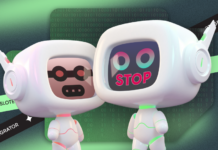
Essays and deadlines can feel like a never-ending cycle of misery for students. Enter artificial intelligence, the new tech-savvy sidekick promising to lighten the load.
But can it actually handle the job, or does it come with baggage of its own? Let’s find out.
Key Points:
- AI can generate essays quickly, saving time.
- It often struggles with depth, originality, and accuracy.
- Tools like AI detectors can catch content generated by artificial intelligence.
- Using AI for academic work raises ethical concerns.
- Knowing the strengths and weaknesses of AI is key for smart use.
What Can Artificial Intelligence Do for Students?

Artificial intelligence has become a Swiss Army knife for students. Need an essay written in an hour? It delivers.
Forget about stressing over word counts; AI churns out entire pages without breaking a sweat. Tools like GPT-based platforms can help structure arguments, find references, and format citations.
But there’s a catch—it’s not all sunshine and top grades. Artificial intelligence often lacks the finesse that professors expect in essays.
It can misinterpret prompts, churn out shallow arguments, or miss critical context. A study by Stanford University highlighted that AI-generated content often lacks originality and can come across as formulaic.
Spotting AI-Generated Content with AI Detector
Professors aren’t clueless. Many are using tools like ZeroGPT’s AI detector to identify AI-generated essays. These tools analyze patterns in the text to determine if a robot has been doing your homework.
Why is this important? Submitting essays written by AI can lead to serious consequences, like failing grades or even academic misconduct charges.
If you’re tempted to use it for essays, knowing about AI detector tools is important. They’re smart enough to sniff out even subtle artificial intelligence fingerprints.
The Pros of Using Artificial Intelligence for Essays
- Time Saver: It can turn your two-hour panic session into a five-minute miracle. It handles outlines, drafts, and even editing in no time.
- Grammar and Spelling Champion: If commas and apostrophes feel like enemies, AI can step in. It polishes grammar and improves readability.
- Idea Generator: Staring at a blank screen? AI can spark ideas, offer topic suggestions, and help craft arguments.
The Cons of Using Artificial Intelligence for Essays

- Lack of Originality: AI loves clichés and generic phrasing. Professors spot this a mile away.
- Risk of Detection: AI detector tools are becoming more advanced, catching AI-generated essays faster than you can say “zero effort.”
- Ethical Concerns: Using it for essays raises questions about fairness. Is it your work, or is it the work of an algorithm?
- Misinformation Risks: It often “hallucinates” facts. A false claim in your essay could embarrass you in front of your professor.
How Does an AI Detector Work?
AI detector tools, like the one from ZeroGPT, analyze the structure, vocabulary, and sentence patterns of your text.
They compare this against known markers of AI-generated content. According to experts, they are highly reliable and can spot artificial work even when edited by humans.
If you think tweaking content can fool an AI detector, think again. Most tools are built to flag even minimal interference.
Tips for Using Artificial Intelligence Ethically
- Supplement Your Work: Let AI help with brainstorming or grammar, but keep the final work original.
- Cite Where Necessary: If you use it for ideas or phrasing, treat it like any other source—acknowledge it.
- Test with AI Detector Tools: Before submitting your essay, run it through an AI detector to see how it holds up. Better to catch issues yourself than let your professor catch them.
What Does the Research Say?
Studies show mixed results for AI-generated essays. According to MIT researchers, artificial intelligence can excel at generating surface-level arguments but struggles with nuance and deep analysis.
Professors also report spotting such content easily due to its repetitive structure.
On the other hand, some educators argue artificial intelligence can act as a learning tool, helping students refine their writing through suggestions and corrections.
The Ethical Dilemma of Artificial Intelligence in Education
Artificial intelligence’s role in education sparks debate. Some argue it levels the playing field by offering resources to students who struggle with writing. Others see it as a shortcut that undermines academic integrity.
Schools face challenges in defining what counts as cheating when artificial intelligence is involved. Clear policies are essential, but not all institutions have caught up with the technology.
For students, the ethical question boils down to personal values. Using artificial intelligence responsibly can enhance learning, but relying on it too much erodes critical skills.
Can Artificial Intelligence Replace Human Creativity?
Artificial intelligence is great at processing patterns and churning out logical arguments, but it lacks the spark of human creativity. Essays often require a personal touch—an insight that can’t be replicated by algorithms.
Think about a literature essay where you connect themes to your own life or a persuasive piece where emotion drives the argument.
Artificial intelligence can mimic style, but it doesn’t feel, empathize, or innovate the way humans do. That’s where the human brain holds an unshakable edge.
The Future of Artificial Intelligence in Academic Writing

Universities might incorporate AI into the curriculum, teaching students how to use it ethically and effectively. Instead of banning it outright, schools could focus on helping students integrate it into their learning.
However, the responsibility also falls on students. Learning when and how to use it, without letting it replace original thought, will be key.
Conclusion
Artificial intelligence offers exciting possibilities for students, but it’s not a one-size-fits-all solution. It can help with brainstorming and editing, but it struggles with originality and creativity. Tools like AI detectors ensure that students can’t rely on AI alone to do their work for them.
Ultimately, essays are a way to showcase your unique perspective and critical thinking. Artificial intelligence is a tool, not a substitute for effort and personal insight. Use it wisely, stay informed, and remember that your own voice matters most.











